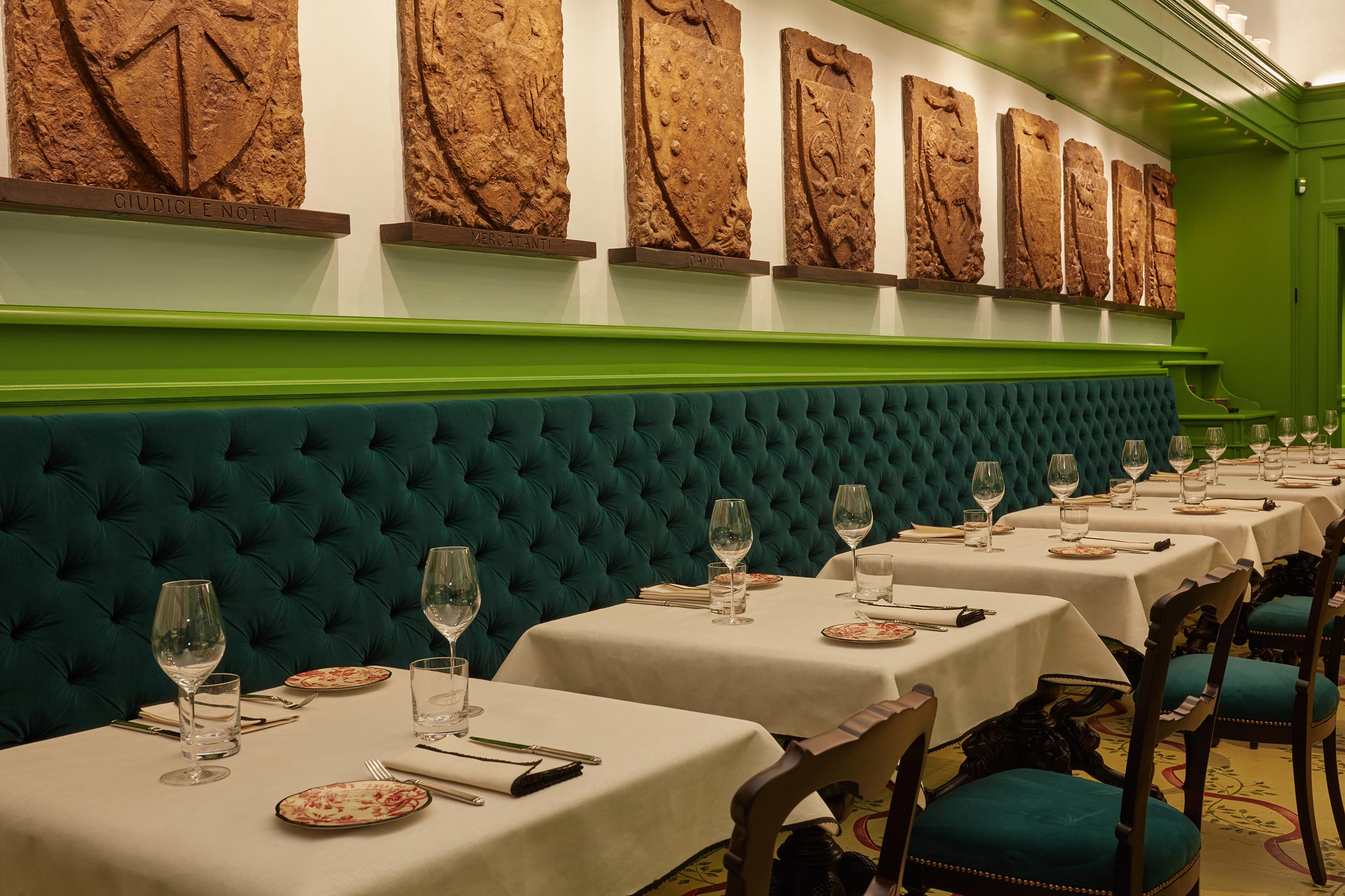In what feels like a victory lap after a year of dominating luxury fashion, Gucci has now set its sight on that other realm of luxury taste: dining. This week, the Italian label will open a restaurant in the heart of the brand’s Gucci Garden, an interactive museum space at the Palazzo della Mercanzia in Florence. The restaurant is being helmed by Massimo Bottura, the renegade chef behind the three-Michelin-star restaurant, Osteria Francescana. The expansion not only marks an occasion for quips al dente about “haute couture” meeting “haute cuisine,” but for Gucci creative director Alessandro Michele to provide the world with metaphysical musings about the garden’s animistic powers, which he notes in a press release, “belongs above all to the mind” and “symbolizes a perpetual beginning and a perpetual return.”
What will determine guests returning perpetually is the quality of the dishes exceeding the average museum fair, which, admittedly, is on the rise in urban artistic hubs. Bottura has revealed a quite compelling menu composed of Peruvian specialties, as well dishes he’s made his name on, such as Parmigiano Reggiano tortellini and mushroom risotto. “The restaurant is a reminder that Florence has always been a center of cultural exchange, particularly during the Renaissance,” Bottura said in the opening announcement.
The opening is instep with a number of other legacy brands, who are following their wealthiest patrons into different sectors to, presumably, amplify their high luxury appeal with luxe experiences. “Food is luxury as much as fashion,” said Stefano Cantino, marketing director for Prada, which owns the patisserie Marchesi in Milan. Brands from Burberry to Tiffany have opened dining rooms for shoppers to luxuriate in. At Burberry’s flagship store in London, oysters, game terrine and ham hocks are served at their speciality cafe on the second floor. LVMH have announced plans to open a second location for their gourmet grocery, La Grande Epicerie, at the former site of Le Bon Marché in Paris. It’s a nice callback to the 1923 location that was the world’s first department store to incorporate a tea room. Even Karl Lagerfeld is participating in fashion’s culinary capitulation. Despite Lagerfeld’s claim that he “hates the smell of all cooking”, this past Christmas, Chanel put his stoney expression on a Bûche de Noël, or, a yule log that cost $168.
Still, as one analyst points out, its a risky bet to associate a brand with the variables of a kitchen.“The experience has to be luxurious and recognizable,” said Bernstein analyst Mario Ortelli. Anything less, he suggests, may muddy a brand’s appeal. No consumer, after all, wants to be reminded of a dish that had to be sent back to the kitchen.







